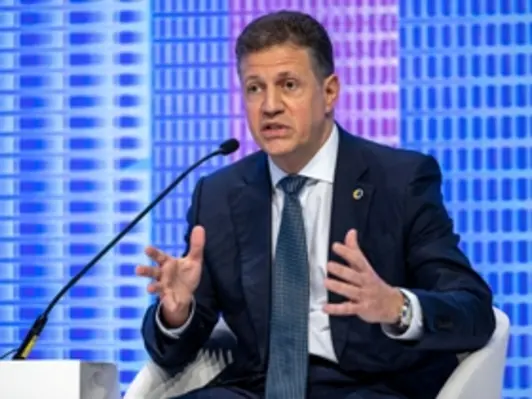The geopolitical conflicts and energy supply crises impacting world economies have underscored the need for greater resilience in energy supply and the need for a smarter carbon transition policy, Majid Jafar, the CEO of Crescent Petroleum, told industry and policy leaders at the opening panel of the Atlantic Council Global Energy Forum in Dubai
Jafar, who heads up the Middle East’s oldest private upstream oil and gas company, said that lasting progress on carbon emissions requires policies that fit the needs and dynamics of each country, particularly in the developing world where energy demand is growing rapidly and where energy security challenges are felt most acutely. And in this regard, the wise energy strategy for 2050 of the UAE recognises the continued importance of oil and gas, while also growing the contribution of cleaner energy sources from solar and nuclear power.
“Current events demonstrate that energy policies need to deliver affordable and reliable energy supplies to withstand supply shocks and other challenges. We have witnessed how lower winds in Europe impacted wind generation and how conflict created oil and gas supply and price shocks. The world must account for such challenges while delivering reductions in carbon emissions because an energy transition without energy security will not succeed,” said Jafar.
“The UAE’s visionary energy policy for 2050 highlights how this can be achieved by combining natural gas with cleaner sources such as solar power and nuclear energy, in order to maintain energy resilience while reducing carbon emissions. As the UAE prepares to host COP28 in 2023, this will only reinforce the country’s proven leadership in energy policy and international engagement,” he added.
The Global Energy Forum, held in collaboration with the World Government Summit during the final week at Expo 2020, focused on understanding how geopolitical risks, market dynamics, and climate crises are shaping the energy markets, and how governments and industry can resolve these energy challenges in the long term. Discussions over the two-day event focused on the balance between delivering the carbon transition while ensuring the security of future energy supply. The opening panel also included Fahad Alajlan, president of King Abdullah Petroleum Studies and Research Center; Claudio Descalzi, CEO of Eni; and Tim Holt, member of the executive board of Siemens Energy AG.
At the event, the Atlantic Council and Crescent Petroleum launched an in-depth report entitled “Leading Oil and Gas into the Carbon Transition”, which outlined the opportunities presented by the carbon transition and the critical role that oil and gas companies must play in enabling the transition itself.
Crescent Petroleum became one of the first companies in the industry to achieve carbon neutrality across its operations in 2021 after completing a series of projects to reduce carbon intensity and offset remaining emissions.










